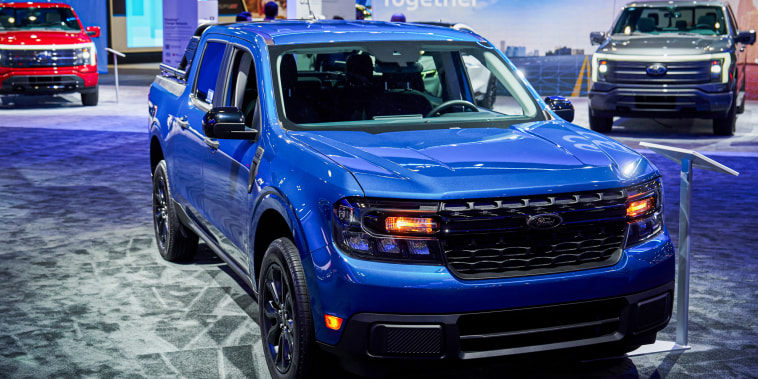
Ford Shifts Gears: Prioritizing Hybrid Innovation Over All-Electric SUV for 2030 Lineup
In the realm of automotive innovation, the race towards electrification has taken the center stage in recent years. With concerns over climate change and the push towards sustainable mobility gaining momentum, automobile manufacturers are increasingly looking towards electric vehicles (EVs) as the future of transportation.
However, in a surprising move that has sparked various debates within the automotive industry, Ford Motor Company announced its decision to delay the release of its all-electric SUV in order to focus on offering hybrid vehicles across its lineup by 2030. This strategic shift in direction has raised eyebrows and stirred discussions among industry analysts, enthusiasts, and consumers alike.
Ford’s decision to delay the release of its all-electric SUV comes at a time when many automakers are prioritizing the development and production of fully electric vehicles as part of their long-term sustainability strategies. With the global automotive landscape undergoing a significant transformation towards electrification, Ford’s pivot towards hybrid vehicles seems to diverge from the prevailing trend.
The American automaker’s rationale behind this decision lies in its belief that hybrid vehicles offer a more accessible and versatile option for consumers who may not be fully ready to embrace the transition to all-electric vehicles. By offering a lineup of hybrid vehicles in the coming years, Ford aims to cater to a broader customer base and provide a transitional option for those who are still hesitant to switch to fully electric models.
Moreover, Ford’s focus on hybrid vehicles aligns with its commitment to reducing greenhouse gas emissions and promoting sustainable transportation solutions. By incorporating hybrid technology across its lineup, Ford aims to improve fuel efficiency, reduce carbon emissions, and contribute to a more eco-friendly driving experience for its customers.
While some may view Ford’s decision to delay its all-electric SUV as a step back in the race towards electrification, others see it as a strategic move to bridge the gap between traditional internal combustion engine vehicles and fully electric models. By offering a range of hybrid vehicles, Ford aims to strike a balance between sustainability and consumer preference, ultimately transitioning towards a more electrified future at a pace that suits its diverse customer base.
In conclusion, Ford’s decision to delay its all-electric SUV in favor of focusing on hybrid vehicles signals a nuanced approach towards electrification that seeks to accommodate varying consumer needs and preferences. As the automotive industry continues to evolve towards a more sustainable future, Ford’s strategy highlights the importance of flexibility and adaptability in navigating the complex transition towards electrified mobility.
